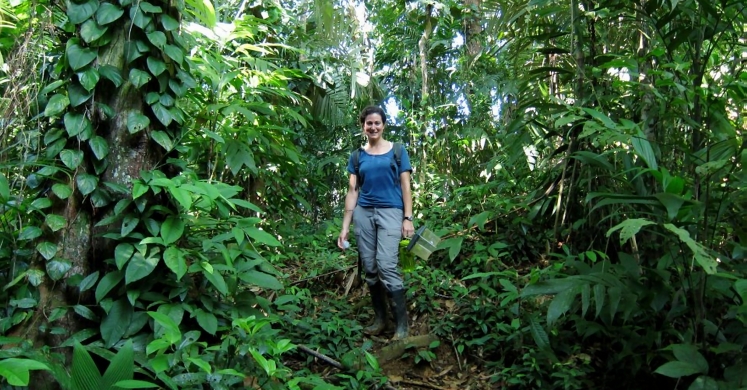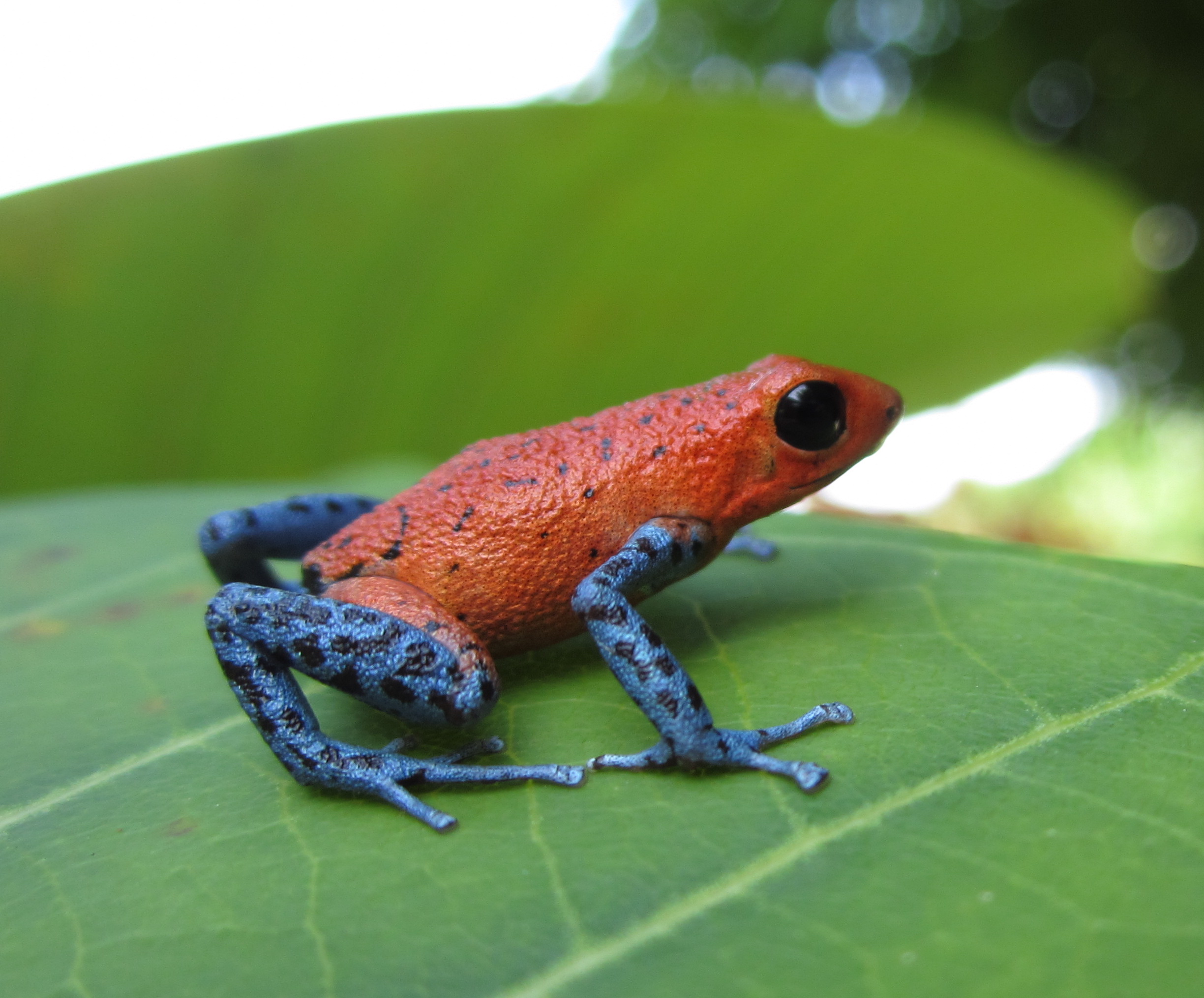Blog

Interview with a Scientist: Layla Freeborn
On Sat., July 16, we will be featuring Science Communication Fellow Layla Freeborn at our "Meet a Scientist" public program. The Science Communication Fellowship program at Phipps seeks to bring scientists and public audiences together in face-to-face public interactions that promote appreciation and understanding of current scientific research and its application. As part of this programming, Phipps hosts regular "Meet a Scientist" public programs in our Tropical Forest Palm Circle where visitors can engage with fellows, learn all about their research and occupations, and see the instruments and equipment utilized in their important work.
Phipps: Give us a short summary of what you do as an evolutionary biologist.
Layla: One of the major goals of evolutionary biology is to explain the diversity of life forms found on our planet. I’m an evolutionary biologist who studies how and why brightly colored animals, like poison dart frogs, appear the way they do. Since bright coloration in frogs can function as a warning signal to potential predators (“Don’t eat me! I’m poisonous!”), but can also help individuals find mates (“We’re the same color, so pick me!”), appearances play a big role in how a poison frog interacts with other species and members of its own species. My research attempts to figure out the cellular and molecular basis of bright coloration in these animals to better understand how such a large diversity of color morphs evolved.
Phipps: Why did you become a scientist?
Layla: I became a scientist because I was attracted to the logical, objective way that science is done. Although I’ve always enjoyed the humanities (the academic disciplines that include interpretive fields like literature, art history and politics), I love that science is based on facts and that the existence of those facts isn’t influenced by peoples’ opinions of them. My curiosity about how the natural world operates — and the idea that I could make a living trying to understand it — drove me to pursue graduate studies in biology.
Phipps: What is the most exciting thing you’ve ever done at work?
Layla: My research requires that I periodically collect poison dart frogs from their natural habitat. I’m lucky that this includes beautiful tropical forests in Central American countries like Panama and Costa Rica, where I spend several weeks at a time looking for frogs. Walking — or even standing still — in a tropical forest is one of the most sensory-rich experiences. It can be exciting in every sense of the word.

Phipps: What skills do you use in your job?
Layla: One of the things I love about being in the proverbial trenches of science is the diversity of skills I get to use and develop! These include writing papers and grants, organizing and maintaining large datasets (a tedious and time-consuming part of science), a whole suite of laboratory techniques, and genetic analyses. As I develop as a scientist, I appreciate more and more that the scientific process involves a great deal of creativity at almost every step. Coming up with interesting hypotheses, figuring out ways to test them, and creating diagrams and figures to present results all require thinking outside the box.
Phipps: What is your favorite part of your job?
Layla: More than anything else, I enjoy being surrounded by people who are passionate about what they do. After that, I love that my graduate work is so dynamic. In any given week I work on a variety of projects and tasks, so I’m rarely bored and almost always challenged!
Phipps: If you weren’t a scientist what would you be?
Layla: It’s difficult to imagine myself being totally removed from science. Maybe I would work in the medical field. Or maybe I would do something laid back and fun, like lead jungle tours.
Phipps: Why is science education important?
Layla: Science is an integral part of our lives, so it’s important that everyone has an understanding of the basics. I think people have the notion of understanding science to mean regurgitating a bunch of facts or arguing about long mathematical equations — like in The Big Bang Theory — and that scares a lot of people away. Although factual knowledge is important to science education, I think the most important thing to get out of it is an appreciation and understanding of the scientific method. That is, the process in which scientists ask questions, develop hypotheses, and come up with ways to test them. It’s a repeatable process based on measurable evidence and not opinion or belief. I think public understanding of the scientific method is key to making informed decisions about how humans should interact with the planet, but that’s just one of many reasons why it’s important.
Photos © Layla Freeborn

